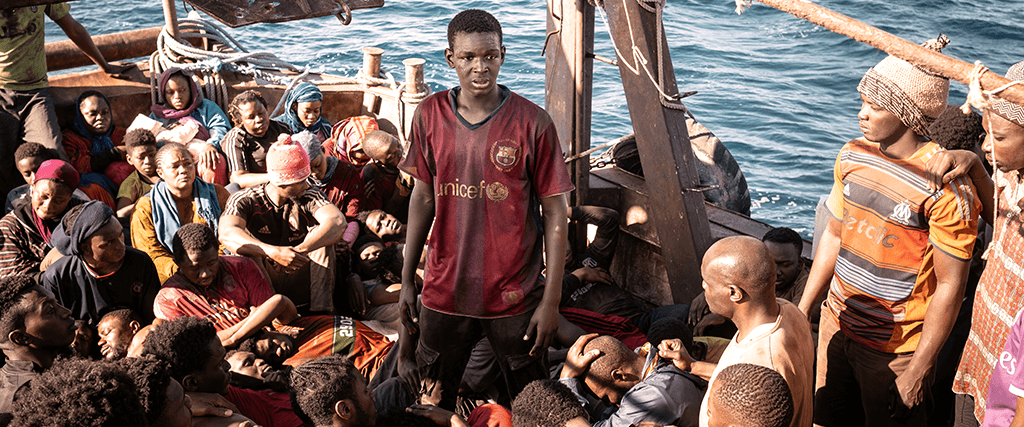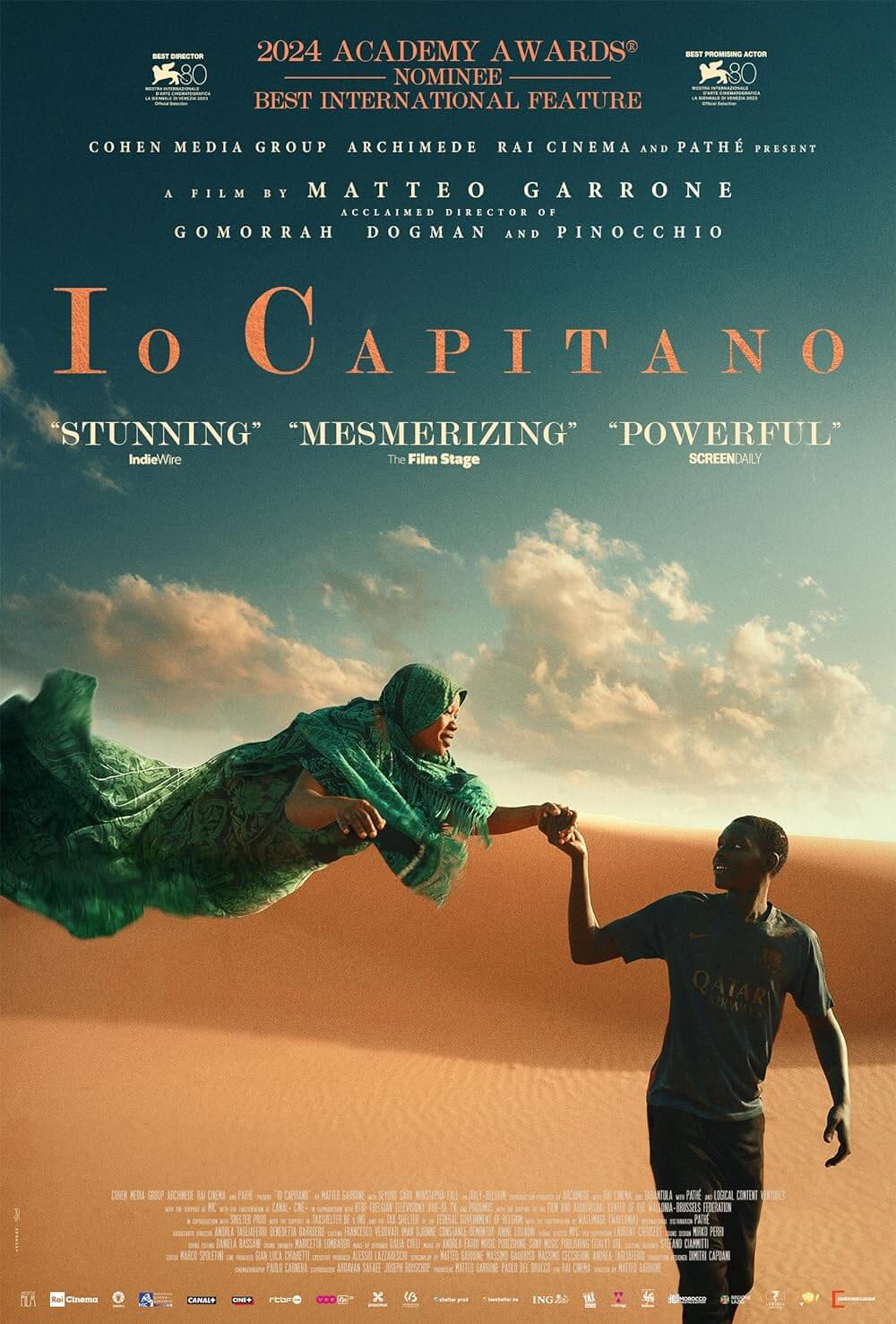Short Takes

Io Capitano
By Brian Eggert |
In Io Capitano (I Captain), a harrowing account of two boys traveling 3,500 miles from Dakar to Sicily, director Matteo Garrone charts an episodic journey. It spans the Nigerien desert; stops for a nightmarish interlude under Libya detainment, where the hero endures beatings and the threat of torture and death; and then continues on a desperate voyage across the Mediterranean. Written by Garrone and three co-writers (Massimo Gaudioso, Massimo Ceccherini, Andrea Tagliaferri), the narrative explores the grim reality of people who survive their migration to Europe within an epic framework worthy of Homer. To be sure, Garrone, no stranger to fantasy—see Tale of Tales (2015), Dogman (2018), and Pinocchio (2019)—modeled his film on the sweeping adventures in The Odyssey, even while looking unflinchingly at the real-life consequences, similar to his 2008 gangster film Gomorrah. Io Capitano, an Oscar nominee for Best International Feature, represents a harmony of Garrone’s stylistic work to this point and one of his best films in years.
Thousands of people reach Europe’s shores every month, and a shocking number also succumb or go missing during their journey. Garrone’s film immerses the viewer in the subjectivity of one such traveler, Seydou (Seydou Sarr), a Senegalese teen who, along with his friend Moussa (Moustapha Fall), dreams of living in Europe. Both hope to earn money to send back home to their mothers and realize their dreams of becoming musicians. After six months of saving from their thankless manual labor work, they finally have enough for the journey. Before leaving, they ask for blessings from their ancestors and acquire approval from a local priest, but they cannot face their disapproving mothers to say goodbye. Europe awaits—and they expect to find an idyllic haven teeming with opportunity, so they’re shocked upon hearing tales of homelessness in Europe. But then, most of their preconceptions about their journey also prove wrong. Nearly every handler and agent on their trip makes promises or offers favors, but their words usually conceal some betrayal or exploitative agenda.
The smooth camera movements and crisp cinematography by Paolo Carnera convey the myriad terrains in vibrant colors, avoiding the typical grain and hyper-kinetic visual chaos many filmmakers associate with realism. The greatest visual component is Sarr’s face, where the actor gives a marvelous and expressive performance that carries the film’s heart and invites the viewer’s empathy. Accented by a couple of hypnotic dream sequences that play out in Seydou’s mind—a lyrical and spiritual place, given to projecting ghosts and spirits—Garrone’s film is immersed in Seydou’s perspective. While it captures a perilous voyage and remains unwavering in that respect, Io Capitano is a deeply humanist work, armed with Garrone’s subtly political message that argues people should be able to move about their planet freely, without going through what these characters experience.

Thank You for Supporting Independent Film Criticism
If the work on DFR has added something meaningful to your love of movies, please consider supporting it.
Here are a few ways to show your support: make a one-time donation, join DFR’s Patreon for access to exclusive writing, or show your support in other ways.
Your contribution helps keep this site running independently. However you choose to support the site, please know that it’s appreciated.
Thank you for reading, and for making this work possible.
Brian Eggert | Critic, Founder
Deep Focus Review







